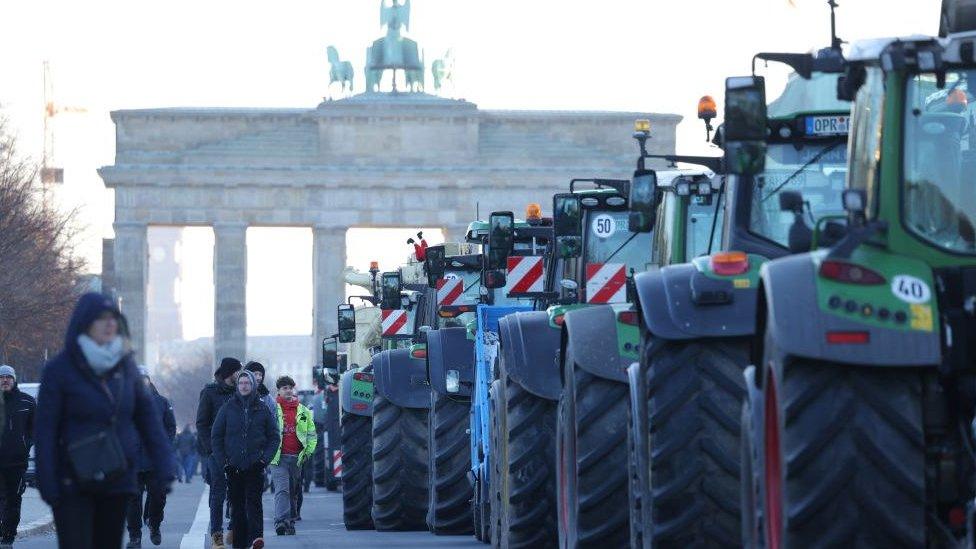Germany: Scholz warns against rise of neo-Nazi networks
- Published
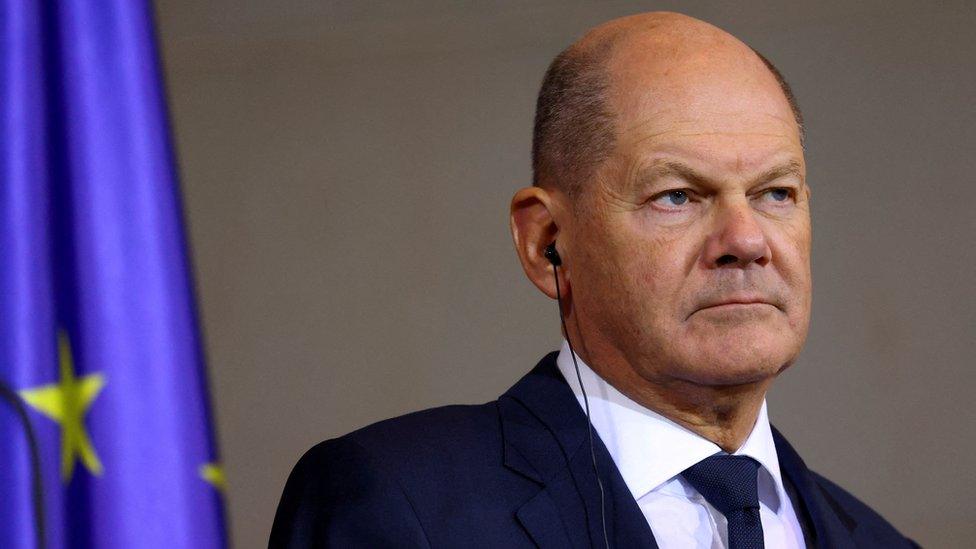
German Chancellor Olaf Scholz has voiced concerns over the rise of far-right extremism as his country marks Holocaust Memorial Day.
He warned of "neo-Nazis and their dark networks", and called on people to fight racism and anti-Semitism.
Thousands marched in Dusseldorf on Saturday in the latest in a series of protests against the far right.
They follow reports that senior figures of the AfD joined discussions on deporting citizens of foreign origins.
Germany is grappling with a debate over whether to ban far-right political parties.
In a pre-recorded speech marking 79 years since the Auschwitz extermination camp was liberated by Soviet troops, he said: "New reports are emerging all the time: about neo-Nazis and their dark networks. At the same time, right-wing populists are gaining ground, fuelling fear and sowing hatred."
"But this development is not something we simply have to accept," said Mr Scholz, as he called on Germans to stand up against the far right and protect Germany's democracy.
"Our country is on its feet right now. Millions of citizens are taking to the streets in favour of democracy, respect and humanity for one another. After all, that's what it's all about. It is the cohesion of democrats that makes our democracy strong. Showing it confidently in public - as is happening now - feels good."
Mr Scholz also welcomed a landmark ruling to cut funding to the radical right-wing party, Die Heimat.
On Wednesday, Germany's constitutional court ruled that the party should be barred from receiving further state funding and tax breaks that German parties legally receive.
The ruling also marks the first time that Germany has cut state financial support for a party without banning it.
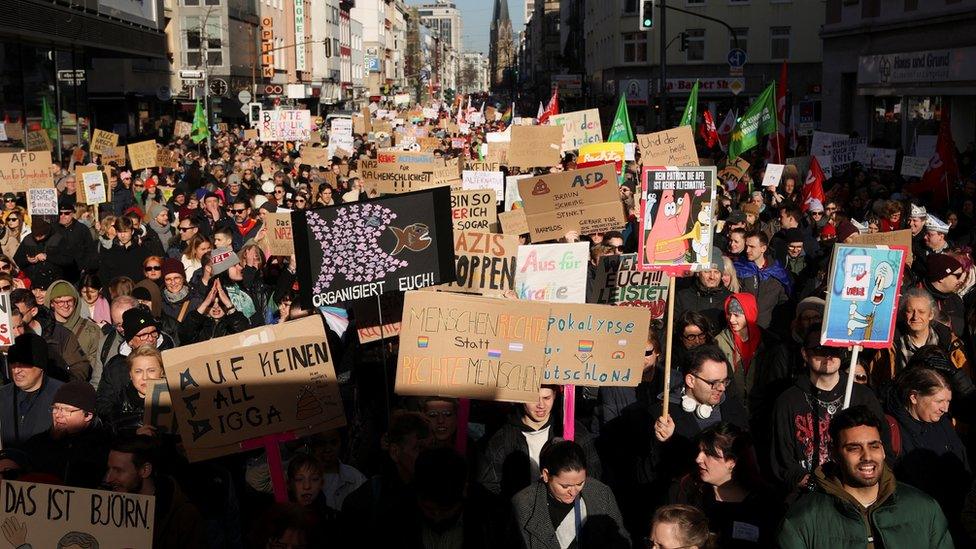
Thousands of people took to the streets in the city of Dusseldorf in protests against far right extremism
Germany has seen widespread demonstrations against far-right extremism following revelations that senior figures of the far-right party Alternative for Germany (AfD) attended a meeting where mass deportations of citizens of foreign origin were allegedly discussed.
Protesters are hoping that Wednesday's ruling will serve as a model for dealing with increasing support for the AfD, which is polling second nationally at above 20%.
It is also polling first at just above 30% in three eastern German states where key regional elections will be held later this year.
- Published23 January 2024
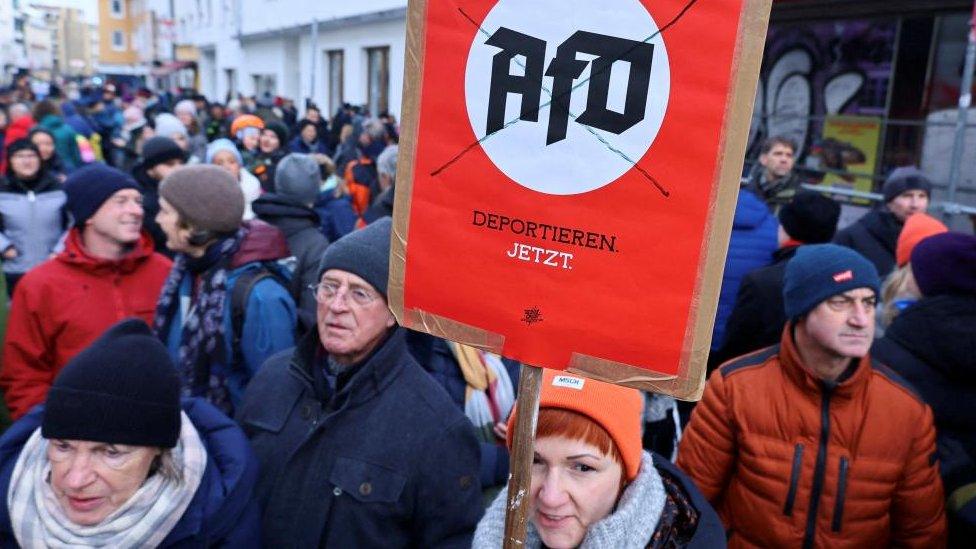
- Published20 January 2024
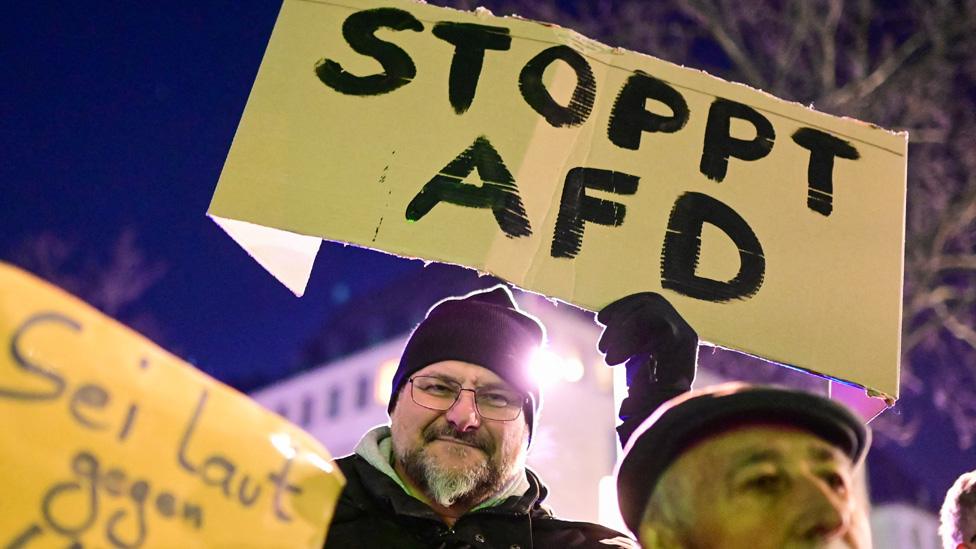
- Published15 January 2024
